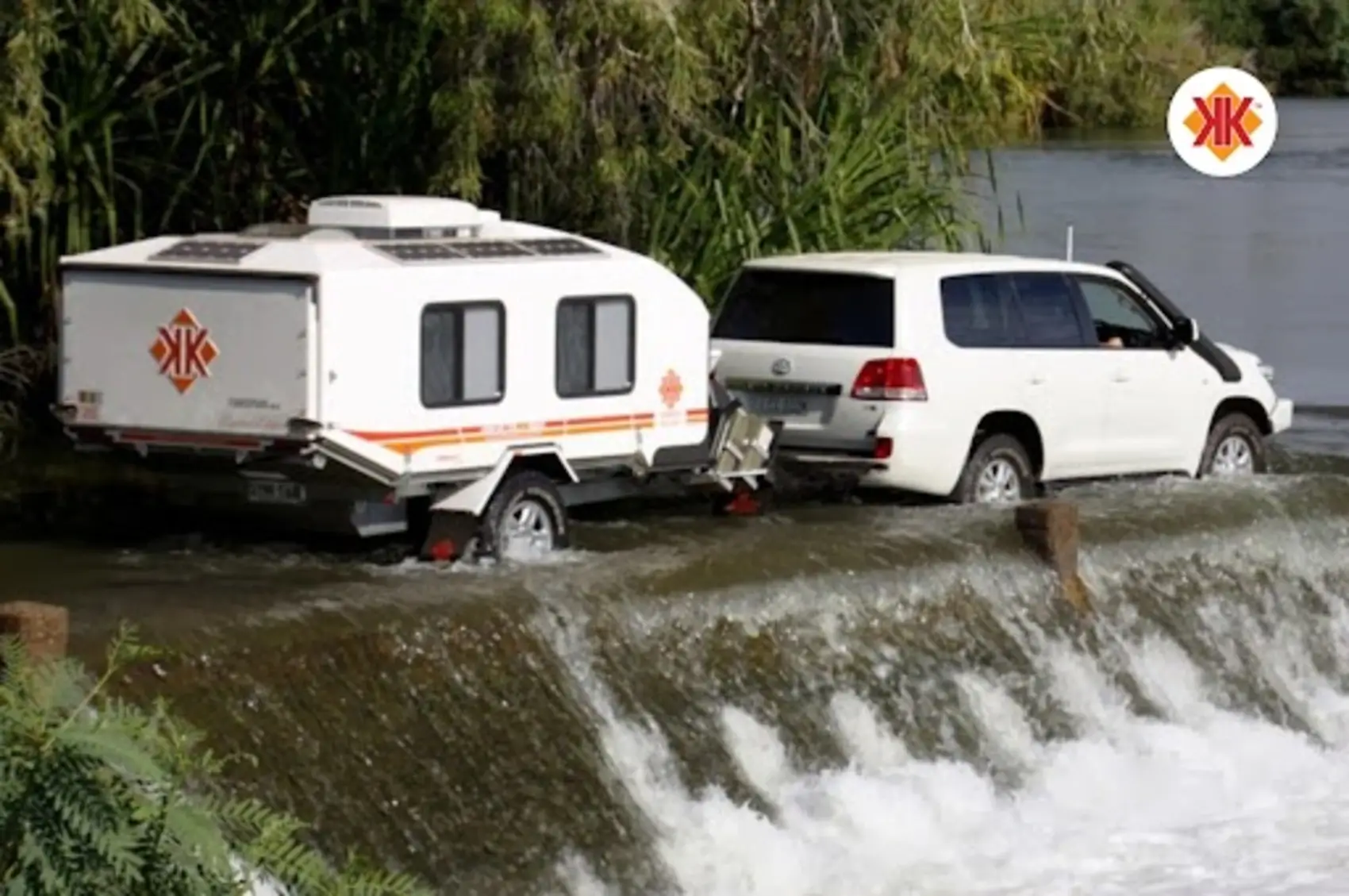As more travellers become conscious of their environmental impact, off-road caravans have emerged as a popular choice for eco-friendly and sustainable travel. These robust vehicles not only allow adventurers to explore remote and pristine locations but also incorporate various features that minimise environmental harm. In this comprehensive article, we will explore the many ways in which off-road caravans are eco-friendly and sustainable, making them the perfect choice for nature lovers.
Understanding the Eco-Friendly Appeal of Off-Road Caravans
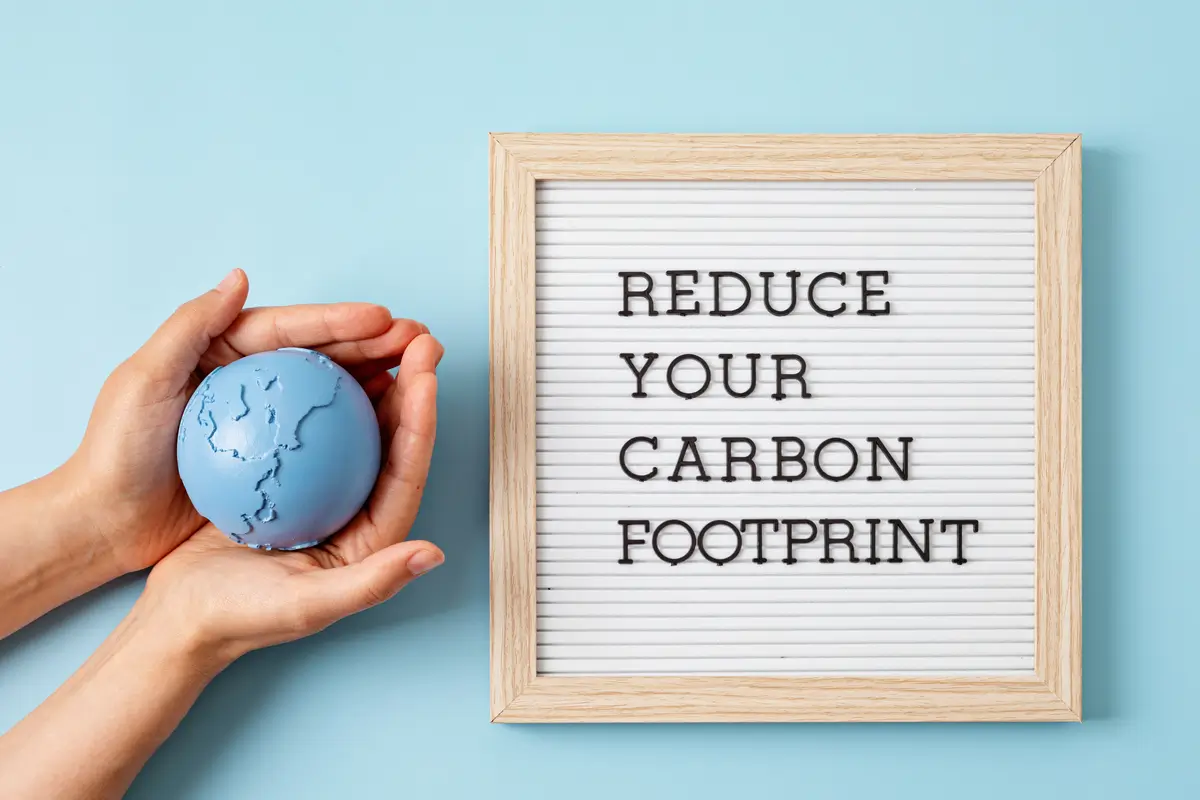
Reduced Carbon Footprint
One of the most significant advantages of off-road caravans is their potential to reduce your carbon footprint. Unlike traditional RVs, off-road caravans are often designed with fuel efficiency and lower emissions in mind.
Fuel Efficiency
Off-road caravans are generally lighter and more aerodynamic than traditional RVs, which translates to better fuel efficiency. Their design reduces drag, allowing for smoother travel and lower fuel consumption. This not only saves money on fuel costs but also reduces the amount of greenhouse gases emitted during your travels.
Eco-Friendly Engine Technology
Many modern off-road caravans are equipped with advanced engine technology that prioritises fuel efficiency and lower emissions. Diesel engines, in particular, have seen significant improvements in recent years, offering better performance and reduced environmental impact. Additionally, some off-road caravans come with hybrid or electric power options, further minimising their carbon footprint.
Sustainable Building Materials
The use of sustainable materials in the construction of off-road caravans is another key factor in their eco-friendliness. Manufacturers are increasingly adopting eco-friendly practices to meet the growing demand for sustainable travel options.
Recycled and Renewable Materials
Many off-road caravans are built using recycled and renewable materials, reducing the need for virgin resources and minimising waste. For example, recycled aluminium and steel are commonly used in chassis and body construction, while sustainably sourced wood and bamboo are used for interior fittings and furniture.
Non-Toxic and Low-Emission Materials
The interiors of off-road caravans are often designed with non-toxic and low-emission materials, such as low-VOC (volatile organic compound) paints and adhesives. These materials not only create a healthier living environment inside the caravan but also contribute to better air quality and reduced environmental impact.
Solar Power and Renewable Energy
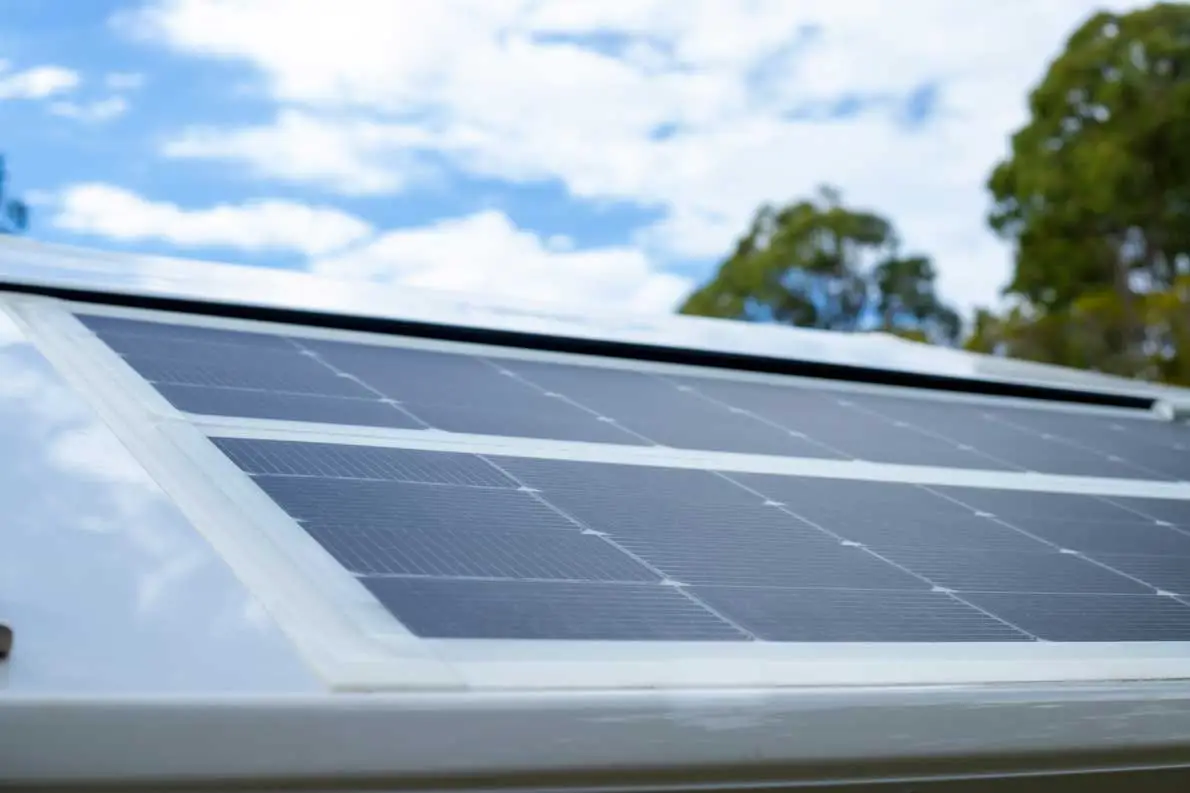
Harnessing renewable energy is a cornerstone of eco-friendly off-road caravanning. Solar power, in particular, plays a crucial role in reducing reliance on fossil fuels and promoting sustainable travel practices.
Solar Panels
Many off-road caravans are equipped with solar panels that generate clean, renewable energy to power various onboard systems. Solar panels can be used to charge batteries, run appliances, and provide lighting, reducing the need for external power sources and lowering your carbon footprint.
Efficient Energy Storage
Advanced energy storage systems, such as lithium-ion batteries, are commonly used in off-road caravans to store solar energy efficiently. These batteries have a longer lifespan and higher energy density compared to traditional lead-acid batteries, providing a reliable and sustainable power source for your travels.
Water Conservation and Management
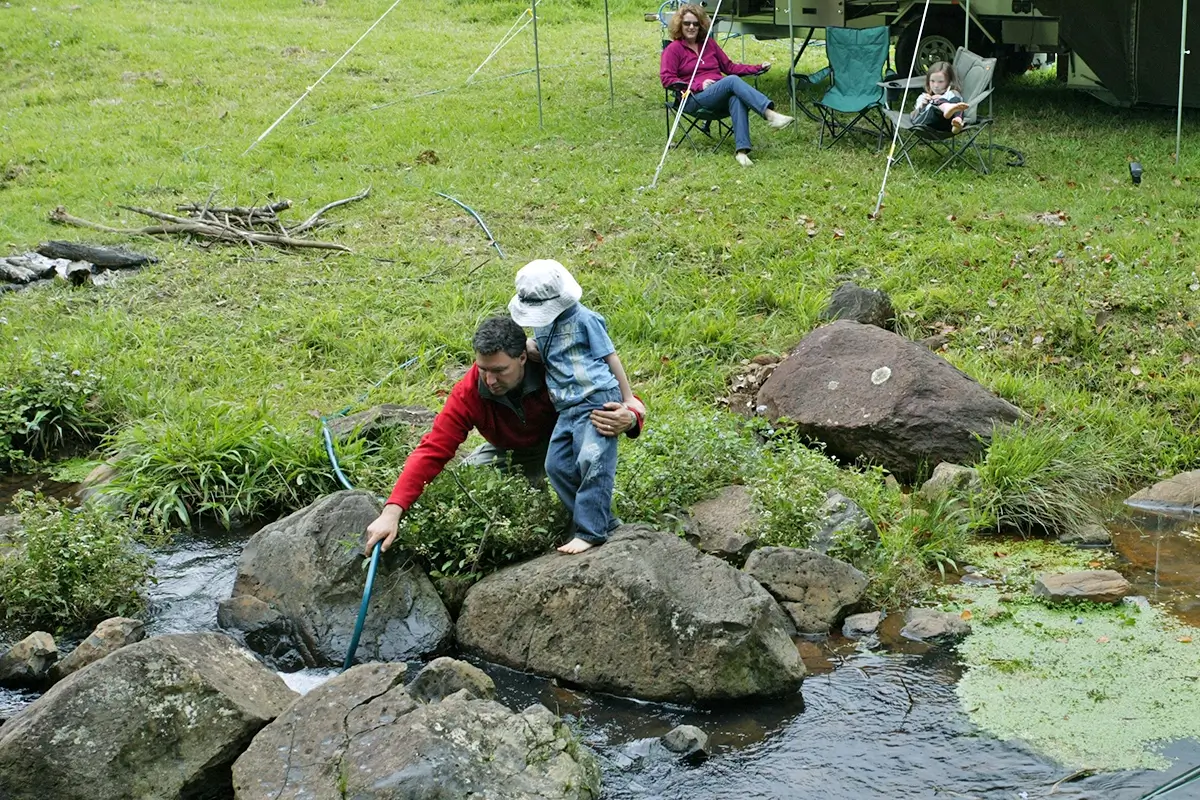
Effective water conservation and management are essential aspects of eco-friendly off-road caravanning. Off-road caravans often incorporate various features to minimise water usage and promote sustainable practices.
Water-Saving Fixtures
Many off-road caravans are equipped with water-saving fixtures, such as low-flow faucets, showerheads, and toilets. These fixtures reduce water consumption without compromising on comfort and convenience, helping to conserve this precious resource.
Greywater Systems
Greywater systems are another common feature in off-road caravans, allowing you to recycle and reuse water from sinks and showers for purposes such as flushing toilets or irrigating plants. This reduces the amount of freshwater needed and minimises wastewater generation, promoting more sustainable water use.
Waste Reduction and Recycling
Proper waste management is crucial for minimising the environmental impact of off-road caravanning. Many off-road caravans are designed with features that promote waste reduction and recycling.
Composting Toilets
Composting toilets are an eco-friendly alternative to traditional RV toilets, which often require chemical treatments and generate blackwater waste. Composting toilets use natural processes to break down waste into compost, reducing the need for water and eliminating harmful chemicals.
Waste Separation and Recycling
Off-road caravans often include systems for separating and recycling different types of waste, such as plastics, paper, and organic matter. By sorting and recycling waste, you can significantly reduce the amount of landfill-bound trash and promote a more sustainable lifestyle on the road.
Benefits of Eco-Friendly Off-Road Caravanning
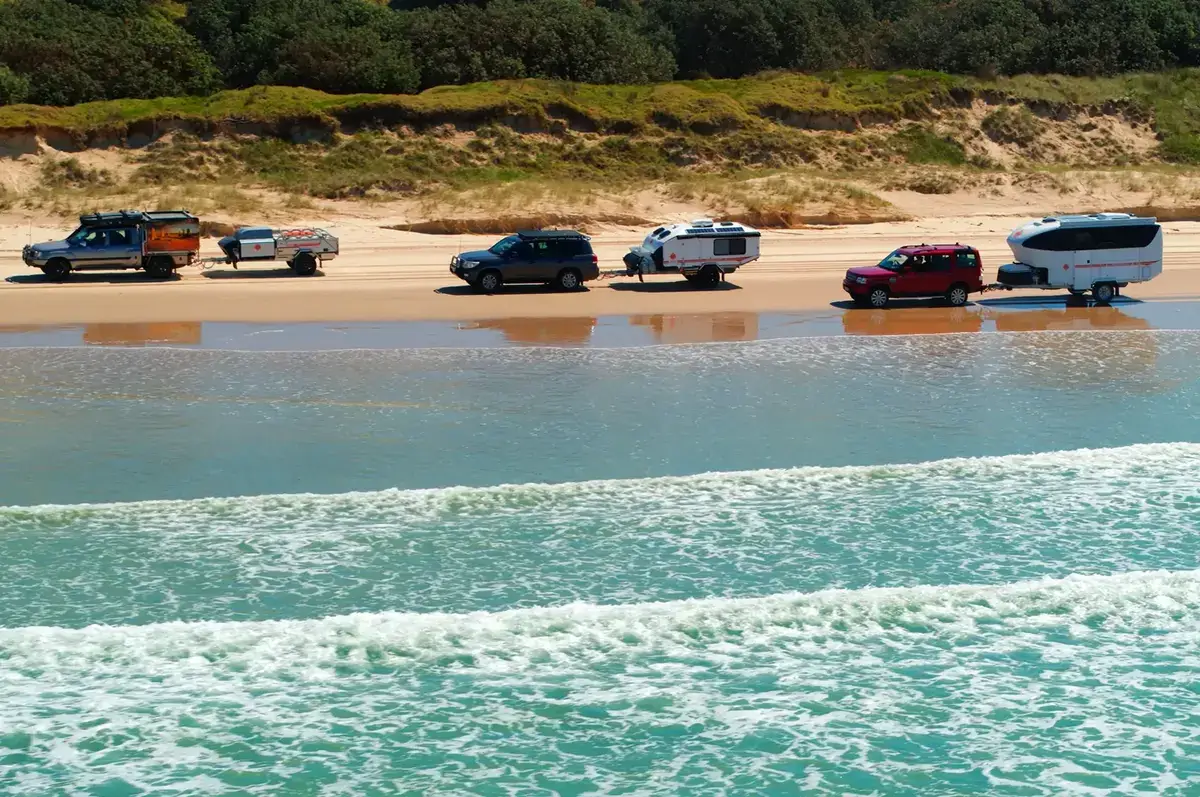
Preserving Natural Environments
One of the primary benefits of eco-friendly off-road caravanning is its positive impact on preserving natural environments. By minimising your environmental footprint, you can help protect the pristine landscapes and ecosystems you love to explore.
Leave No Trace Principles
Off-road caravanning encourages the practice of Leave No Trace principles, which emphasise minimising your impact on the environment. This includes packing out all trash, avoiding damage to vegetation and wildlife, and respecting natural and cultural heritage sites.
Reduced Pollution
The use of renewable energy, water-saving fixtures, and sustainable materials helps reduce pollution and environmental degradation. By choosing an eco-friendly off-road caravan, you contribute to cleaner air, water, and soil, preserving the beauty and health of natural environments for future generations.
Enhanced Travel Experience
Eco-friendly off-road caravanning not only benefits the environment but also enhances your travel experience. Sustainable practices often lead to a more comfortable, enjoyable, and fulfilling journey.
Off-Grid Freedom
The ability to generate your power and manage water resources efficiently allows for greater independence and freedom during your travels. With an eco-friendly off-road caravan, you can explore remote and off-grid locations without relying on external facilities, immersing yourself in nature and experiencing true solitude and tranquillity.
Healthier Living Environment
The use of non-toxic and low-emission materials creates a healthier living environment inside your off-road caravan. Better air quality and reduced exposure to harmful chemicals contribute to your overall well-being, ensuring a comfortable and safe travel experience.
Community and Education
Eco-friendly off-road caravanning fosters a sense of community and promotes environmental education. By connecting with like-minded travellers and sharing sustainable practices, you can inspire others to adopt eco-friendly habits and contribute to a more sustainable future.
Eco-Conscious Community
Joining eco-friendly off-road caravanning groups and communities allows you to connect with other nature lovers who share your commitment to sustainability. These communities provide valuable support, resources, and inspiration, enhancing your overall travel experience and fostering lasting friendships.
Environmental Education
Travelling in an eco-friendly off-road caravan provides numerous opportunities for environmental education and awareness. By observing and learning about different ecosystems, wildlife, and conservation efforts, you can deepen your understanding of the natural world and become a more informed and responsible traveller.
Practical Tips for Sustainable Off-Road Caravanning
Plan and Prepare
Proper planning and preparation are essential for a successful and sustainable off-road caravanning experience. Here are some practical tips to help you get started:
Research and Choose Eco-Friendly Routes
Research your travel routes and destinations to ensure they align with your eco-friendly values. Choose routes that minimise environmental impact and avoid sensitive or protected areas. Look for destinations that support sustainable tourism and offer eco-friendly facilities and services.
Pack Light and Efficiently
Packing light and efficiently reduces the weight of your off-road caravan, improving fuel efficiency and reducing wear and tear. Bring only the essentials and opt for multi-purpose items to minimise waste and clutter.
Practice Sustainable Camping
Adopting sustainable camping practices is crucial for minimising your environmental impact and promoting responsible travel. Here are some tips to help you camp sustainably:
Use Biodegradable Products
Choose biodegradable and eco-friendly products, such as soaps, detergents, and cleaning supplies. These products break down naturally and do not harm the environment, reducing pollution and protecting wildlife.
Respect Wildlife and Natural Habitats
Respect wildlife and natural habitats by maintaining a safe distance and avoiding disturbance. Do not feed or approach animals, and be mindful of your impact on their homes and food sources.
Conserve Resources
Conserving resources is a key aspect of sustainable off-road caravanning. Here are some tips to help you conserve water, energy, and other resources:
Monitor Water Usage
Keep track of your water usage and find ways to reduce consumption. Use water-saving fixtures, take shorter showers, and reuse greywater when possible.
Optimise Energy Use
Maximise the efficiency of your solar panels and batteries by monitoring your energy usage and making adjustments as needed. Turn off lights and appliances when not in use, and use energy-efficient devices to minimise power consumption.
Reduce Waste
Minimise waste by choosing reusable products, such as water bottles, shopping bags, and food containers. Avoid single-use plastics and disposable items, and recycle or compost whenever possible.
Educate and Advocate
Promoting sustainability and environmental awareness is an important part of eco-friendly off-road caravanning. Here are some ways to educate and advocate for a greener future:
Share Your Knowledge
Share your knowledge and experiences with others, whether through social media, blogs, or in-person conversations. Inspire and encourage others to adopt sustainable practices and make eco-friendly choices.
Support Conservation Efforts
Support conservation efforts and organisations that work to protect natural environments and wildlife. Donate your time, resources, or funds to initiatives that align with your values and help make a positive impact.
Conclusion
The rise in popularity of eco-friendly off-road caravanning reflects a growing awareness and commitment to sustainable travel. By choosing off-road caravans that prioritise fuel efficiency, renewable energy, water conservation, and sustainable materials, nature lovers can minimise their environmental impact and enjoy a more fulfilling travel experience.
Off-road caravans offer unique benefits, including access to remote destinations, enhanced durability, and reduced costs. By practising sustainable camping, conserving resources, and promoting environmental awareness, you can contribute to the preservation of natural environments and inspire others to embrace eco-friendly travel.
Whether you’re a seasoned adventurer or new to off-road caravanning, adopting sustainable practices and choosing eco-friendly vehicles can help you explore the world responsibly and leave a positive legacy for future generations. Happy eco-friendly travels!

